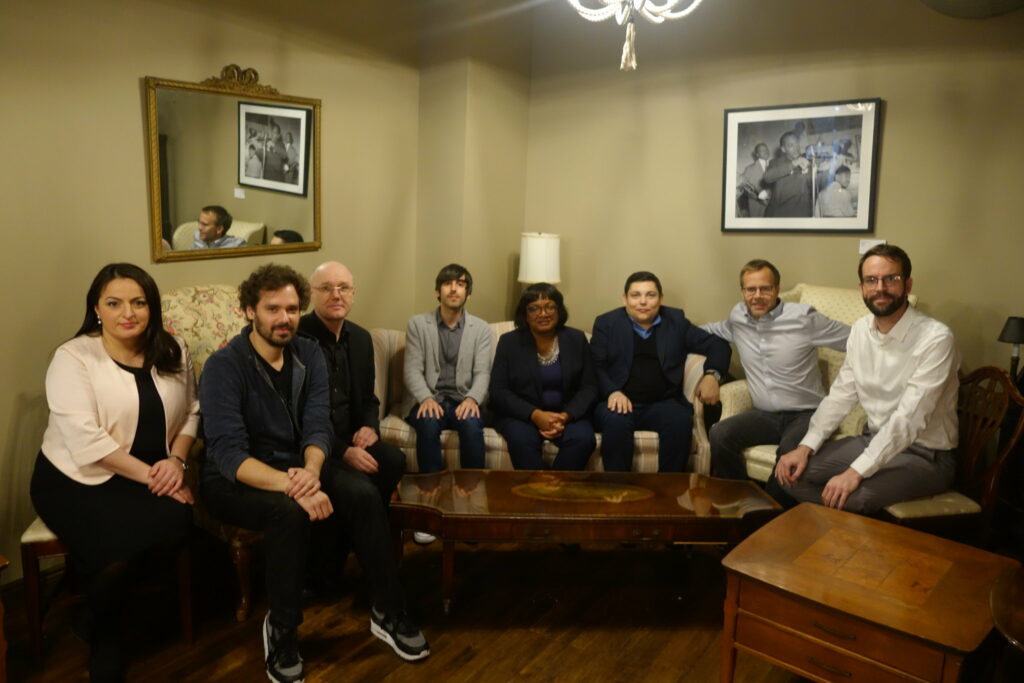With Donald Trump in the White House and Republican majorities in both houses of Congress, the Democratic Party is having a hard time on Capitol Hill. But with the November midterm elections approaching, resistance is increasing all over the country.
The primary Congressional body the resistance can turn to is a group of progressive Democrats, organized as the Congressional Progressive Caucus (CPC). Founded in 1991, it is the largest association of congresspeople in Washington. On March 8 and 9, the CPC hosted this year’s strategy conference, focusing on how to oppose the daily attacks by the President and his right-wing conservative enablers. Pressed by younger, decidedly left-wing voters mobilized by Bernie Sanders’ presidential campaign, Democratic congresspeople have to choose which course to take: should they follow the centrist trajectory of Clinton and Obama, or follow Sanders’ example and take a left turn?
While there are a variety of opinions within the CPC, a clear majority of its members seem to be veering left, towards CPC co-founder Sanders. The strategy conference, which has historically focused solely on domestic politics, bucked this trend by inviting a small foreign delegation for the first time ever. Composed and supported by the New York office of the Rosa Luxemburg Stiftung, the delegation consisted of representatives of European left parties: Sevim Dağdelen (deputy chair of Die Linke in the German Bundestag), Eduardo Maura (member of the Spanish parliament for Podemos), Yiannis Bournous (head of International Relations for SYRIZA) and Diane Abbott (representative of the British Labor Party and member of Jeremy Corbyn’s shadow cabinet).
Senator Elizabeth Warren gave the conference keynote speech, heavily criticizing some of her Democratic colleagues. Just a week before the conference, 16 of them had voted with Republicans on a bill softening banking regulations which had been passed after the Great Recession. “It is so hard to fight against all the money and all the lobbying. It is so hard to fight when we fight and lose. It’s worse when some of our teammates don’t even show up for the fight,” she said.
Warren set a tone that resonated with many congresspeople as well as with Sevim Dağdelen, who vehemently criticized US-led wars, especially the war in Afghanistan, which has been raging for over 16 years. Dağdelen pointed to her work on the UN Global Compact and the waves of refugees triggered by these wars. She contrasted the reality of war and forced migration with the call for an end to military intervention and the “right to stay.”
Following Senator Warren, House Minority Leader Nancy Pelosi took the stage. Pelosi exceeded her speaking time considerably, perhaps in an effort to re-establish herself with the CPC after having been challenged from the left in her most recent re-election. In another challenge from the left, Yiannis Bournous successfully pressed Pelosi to agree to send a letter of complaint to IMF head Christine Lagarde regarding the institution’s handling of Greece. Obviously, political pressure has an effect on this level as well.
Former CPC spokesman Keith Ellison gave a brilliant speech, in which he personally thanked the European representatives. The Sanders supporter was the first Muslim to be elected to the US Congress. Last year he narrowly lost the election for party leadership to Tom Perez. Baltimore was friendly territory for Ellison, as well as for New York’s mayor, Bill de Blasio.
In general, the atmosphere was excellent. For one thing, the gathering took place in an informal setting. Even controversies were dealt with in a friendly manner. Secondly, great polling results have elevated Democrats’ hopes for an election victory in November. They might even recapture the majority in the House of Representatives, which in turn would fundamentally change decision-making on Capitol Hill and allow for impeachment proceedings against the President.

With this in mind, the progressive congresspeople joined forces and set to work. They discussed current topics, such as the #MeToo movement, but their main focus was oriented towards trying to develop proper strategies, coalitions and electoral messages confronting the Trump agenda.
And last but not least, the conference was also a large networking event, given the presence of civil society representatives and guests like the delegates from Europe. For example, Podemos’ Eduardo Maura spoke with the mayor of San Juan, Carmen Yulín Cruz, about the disastrous situation in Puerto Rico following the hurricane. Sevim Dağdelen had a discussion with representative Ro Khanna (California) about his recent initiative to end the war in Yemen, and exchanged ideas with Barbara Lee who, three days after 9/11, had been the only member of Congress to vote against launching the war on Afghanistan.
On the second conference day, Diane Abbott gave a speech typifying the political orientation of the CPC and the Democrats. She talked about how Jeremy Corbyn, herself, and a few others had experienced the dark years of Blair’s “Third Way” in the House of Commons. She explained how they did not give up, but fought on, and then, when the opportunity presented itself, took over the neo-liberal party and threw the rudder of the Labour Party to the left. And she explained how this new course, which she emphasized is socialist, has become increasingly popular.
When Abbott delivered the greetings of the “socialist Labor Party” right at the beginning of her speech, the crowd became a little uneasy. However, when she spoke of “socialist” politics for the third time at the end of her speech, she had already won over the audience – which applauded with a standing ovation. At that point, it looked like most of the audience really wanted the Democratic Party to finally stop lagging behind the Republicans, and to begin recognizing the signs of the times by moving decisively to the left. For the many, not the few!



